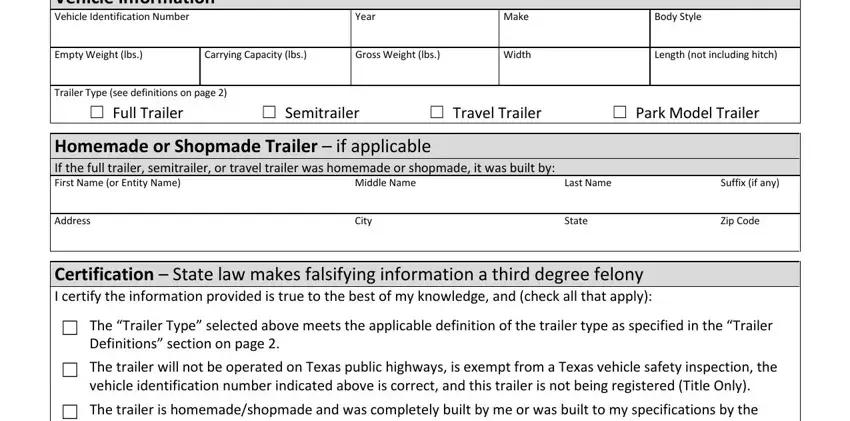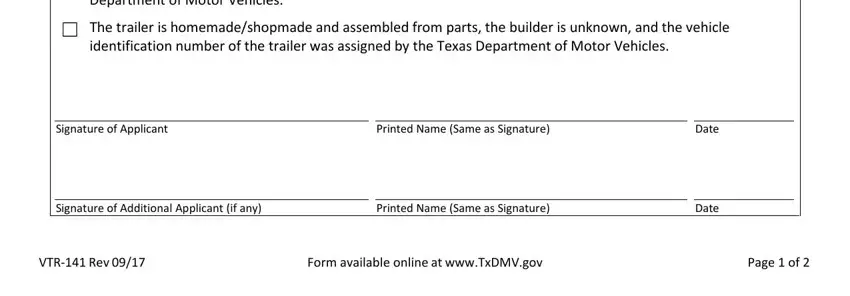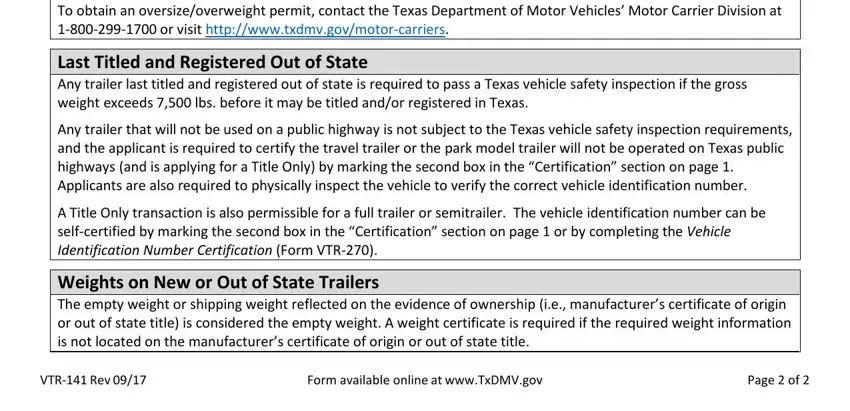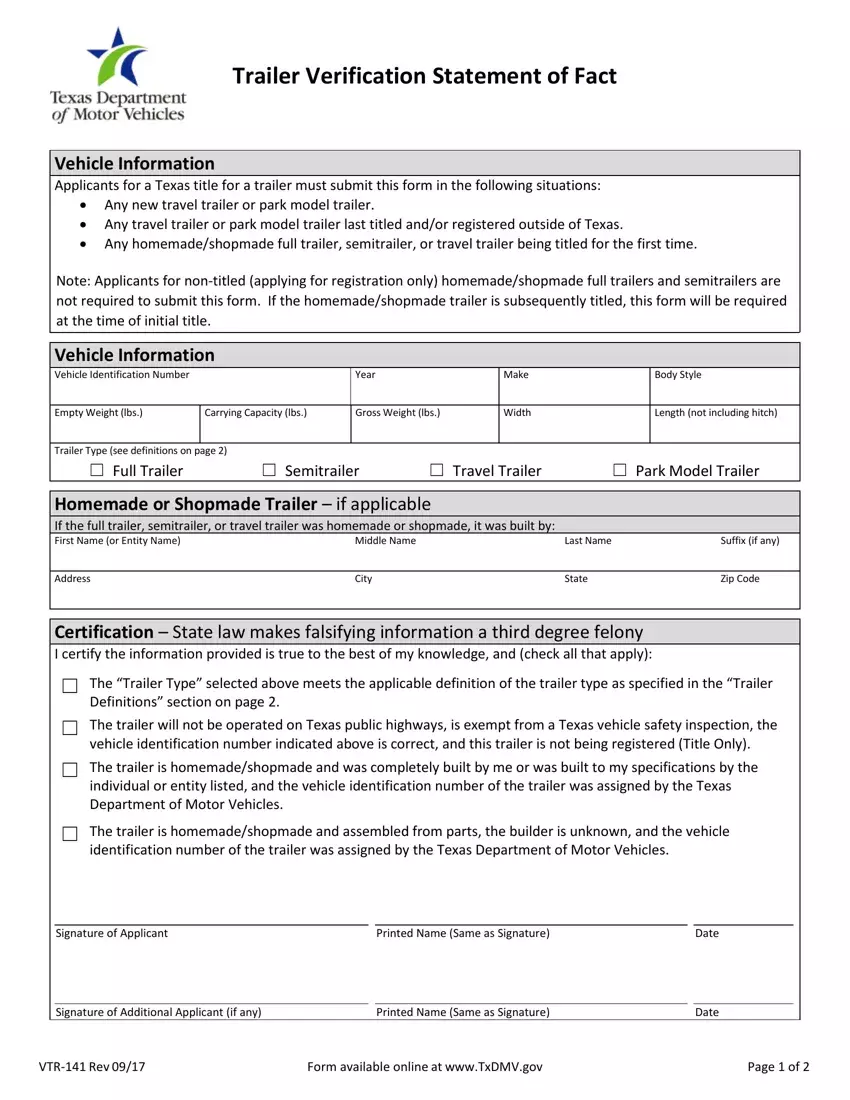Trailer Verification Statement of Fact
Trailer Definitions
Full Trailer
•Designed or used to carry its load wholly on its own structure and is drawn or designed to be drawn by a motor vehicle.
Semitrailer
•Designed or used with a motor vehicle, so part of the weight of the semitrailer and its load rests on or is carried by the motor vehicle drawing the semitrailer.
Travel Trailer
•Not designed or used primarily as a permanent dwelling, but as temporary living quarters for recreational, camping, travel, or seasonal use;
•Built on a single chassis; and
•Must be less than eight (8) feet, six (6) inches in width or less than forty-five (45) feet in length (not including the hitch).
Park Model Trailer
•Not designed for use or primarily used as a permanent dwelling, but as temporary living quarters for recreational, camping, travel, or seasonal use;
•Built on a single chassis;
•Permanently towable by a light duty truck; and
•Eight (8) feet, six (6) inches or greater in width and forty-five (45) feet or greater in length, but 400 square feet or less when measured at the largest horizontal projections.
Note: Manufactured homes designed as a permanent dwelling may not be titled and registered as a travel trailer or park model trailer. Custom trailers with living quarters primarily used for commercial purposes must be titled and registered as a full trailer or semitrailer (including those with farm registration).
Permit Required to Move on Public Highways
Any trailer in excess of eight (8) feet, six (6) inches in width or fourteen (14) feet in height is required to be issued an oversize/overweight permit in addition to regular registration to legally move the trailer on a Texas public highway.
Additionally, a semitrailer exceeding fifty-nine (59) feet, a park model exceeding forty-five (45) feet, and most combinations of a pulling unit and trailer exceeding sixty-five (65) feet in length are required to be issued an oversize/overweight permit (in addition to regular registration) to legally move the trailer on a Texas public highway.
To obtain an oversize/overweight permit, contact the Texas Department of Motor Vehicles’ Motor Carrier Division at 1-800-299-1700 or visit http://www.txdmv.gov/motor-carriers.
Last Titled and Registered Out of State
Any trailer last titled and registered out of state is required to pass a Texas vehicle safety inspection if the gross weight exceeds 7,500 lbs. before it may be titled and/or registered in Texas.
Any trailer that will not be used on a public highway is not subject to the Texas vehicle safety inspection requirements, and the applicant is required to certify the travel trailer or the park model trailer will not be operated on Texas public highways (and is applying for a Title Only) by marking the second box in the “Certification” section on page 1. Applicants are also required to physically inspect the vehicle to verify the correct vehicle identification number.
A Title Only transaction is also permissible for a full trailer or semitrailer. The vehicle identification number can be self-certified by marking the second box in the “Certification” section on page 1 or by completing the Vehicle Identification Number Certification (Form VTR-270).
Weights on New or Out of State Trailers
The empty weight or shipping weight reflected on the evidence of ownership (i.e., manufacturer’s certificate of origin or out of state title) is considered the empty weight. A weight certificate is required if the required weight information is not located on the manufacturer’s certificate of origin or out of state title.






